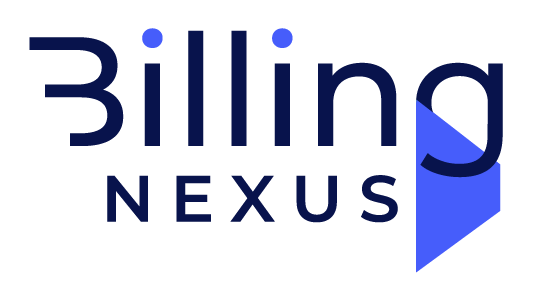The Role of Outsourcing in Modern Medical Billing: Benefits and Best Practices
In today’s dynamic healthcare landscape, medical billing has become a cornerstone for the financial stability of healthcare providers. However, navigating the complexities of insurance claims, regulatory compliance, and payment collections can be overwhelming, especially for small and mid-sized practices. This is where outsourcing medical billing emerges as a transformative solution. By leveraging expert third-party services, healthcare providers can streamline their revenue cycle, minimize errors, and focus on what truly matters: patient care.
In this blog, we’ll explore the benefits of outsourcing medical billing and share best practices for selecting and working with an external billing partner.
Why Outsource Medical Billing?
Medical billing involves intricate processes that require precision, expertise, and up-to-date knowledge of ever-changing regulations. Here’s why outsourcing makes sense in modern healthcare:
1. Cost Savings
Outsourcing medical billing eliminates the need for hiring in-house staff, investing in training, and maintaining billing software. Practices save on overhead costs like salaries, benefits, and infrastructure.
2. Increased Revenue
Professional billing companies have higher claim approval rates due to their expertise in coding and submission. They ensure that claims are processed accurately and promptly, reducing denials and delays.
3. Focus on Core Activities
Healthcare providers can redirect their attention from administrative tasks to delivering quality patient care. Outsourcing reduces the burden on internal staff, improving overall efficiency.
4. Access to Expertise and Technology
Billing companies stay updated on the latest industry trends, regulatory changes, and technological advancements. They use sophisticated software to track claims, manage denials, and ensure compliance.
5. Enhanced Compliance and Security
Reputable billing companies adhere to HIPAA regulations and employ robust cybersecurity measures to safeguard sensitive patient information.
Benefits of Outsourcing Medical Billing
1. Improved Accuracy
Errors in billing can lead to claim denials, delayed payments, or even legal issues. Outsourced providers have dedicated teams of certified coders and billers who specialize in ensuring error-free submissions.
2. Faster Turnaround
Third-party billing services often operate on a 24/7 schedule, ensuring claims are processed quickly. This accelerates payment cycles, improving cash flow.
3. Scalability
As practices grow, their billing needs become more complex. Outsourced providers can scale their services to accommodate increased patient volumes without compromising efficiency.
4. Real-Time Reporting
Many billing companies offer dashboards and reports that provide insights into revenue cycle performance. Providers can monitor claims, reimbursements, and denials in real time.
5. Reduction in Denials and Rejections
With a team of experts handling claims, practices experience fewer denials and rejections. Outsourcing partners focus on proper documentation, accurate coding, and timely submission to ensure smoother processes.
Best Practices for Outsourcing Medical Billing
1. Define Your Needs
Before selecting a billing partner, identify your specific requirements. Do you need end-to-end revenue cycle management or support for specific tasks like claim submission or coding?
2. Research Potential Partners
Choose a provider with a proven track record, industry certifications, and positive client reviews. Verify their expertise in your specialty, as different fields have unique billing challenges.
3. Prioritize Compliance
Ensure that the billing company complies with HIPAA regulations and maintains high-security standards to protect patient data.
4. Evaluate Technology and Tools
Look for partners that use advanced billing software with features like automated claim tracking, denial management, and analytics. Integration with your existing systems is a bonus.
5. Establish Clear Communication Channels
A transparent partnership requires regular updates and effective communication. Set expectations for reporting frequency and response times to queries.
6. Monitor Performance Metrics
Track key performance indicators (KPIs) such as claim approval rates, denial rates, and days in accounts receivable to assess the effectiveness of the outsourced service.
7. Negotiate Transparent Contracts
Avoid hidden fees by ensuring the contract clearly outlines pricing, services, and performance guarantees.
8. Plan for a Transition Period
Smoothly transitioning from in-house billing to an outsourced provider requires coordination. Communicate with your staff and ensure proper data migration to minimize disruptions.
Challenges of Outsourcing Medical Billing
While outsourcing offers numerous benefits, it’s not without challenges.
1. Loss of Control
Some providers worry about losing oversight of their billing processes. This can be mitigated through regular communication and detailed performance reports.
2. Dependence on Third Parties
Over-reliance on an external partner might become problematic if the provider fails to meet expectations. Conduct thorough due diligence before signing contracts.
3. Data Security Risks
Sharing sensitive patient information with a third party poses potential risks. Opt for billing companies with robust cybersecurity measures and data encryption.
How to Choose the Right Medical Billing Partner
1. Experience and Expertise
Choose a company with extensive experience in medical billing and coding. Verify their understanding of your specialty’s unique billing requirements.
2. Technology and Innovation
A modern billing partner should leverage technology like AI for predictive analytics, automated workflows, and denial management.
3. Customizable Services
Not all practices have the same needs. Look for a partner offering flexible services tailored to your requirements.
4. Transparent Pricing
Discuss pricing structures upfront. Some companies charge a percentage of collections, while others have fixed fees. Ensure there are no hidden charges.
5. Customer Support
Responsive customer support is critical. The billing partner should be easily accessible for queries or issues.
Future Trends in Outsourced Medical Billing
1. Artificial Intelligence and Automation
AI-driven tools are revolutionizing medical billing by automating repetitive tasks, identifying coding errors, and predicting claim outcomes.
2. Value-Based Care
With the shift towards value-based care models, billing companies are adapting to focus on quality metrics and patient outcomes.
3. Telemedicine Billing
The rise of telemedicine has introduced unique billing challenges. Outsourcing partners are evolving to handle these complexities effectively.
4. Data-Driven Insights
Advanced analytics enable billing companies to provide actionable insights into revenue cycle performance, helping providers make informed decisions.
Conclusion
Outsourcing medical billing is a strategic move that allows healthcare providers to optimize their revenue cycles, reduce administrative burdens, and enhance financial performance. By partnering with a trusted billing company, practices can achieve greater accuracy, faster claim processing, and improved compliance.
However, choosing the right partner is crucial to reaping these benefits. Conduct thorough research, establish clear expectations, and continuously monitor performance to ensure a successful outsourcing relationship.
With the right approach, outsourcing medical billing can transform how healthcare providers manage their financial operations, paving the way for sustainable growth and better patient care.

